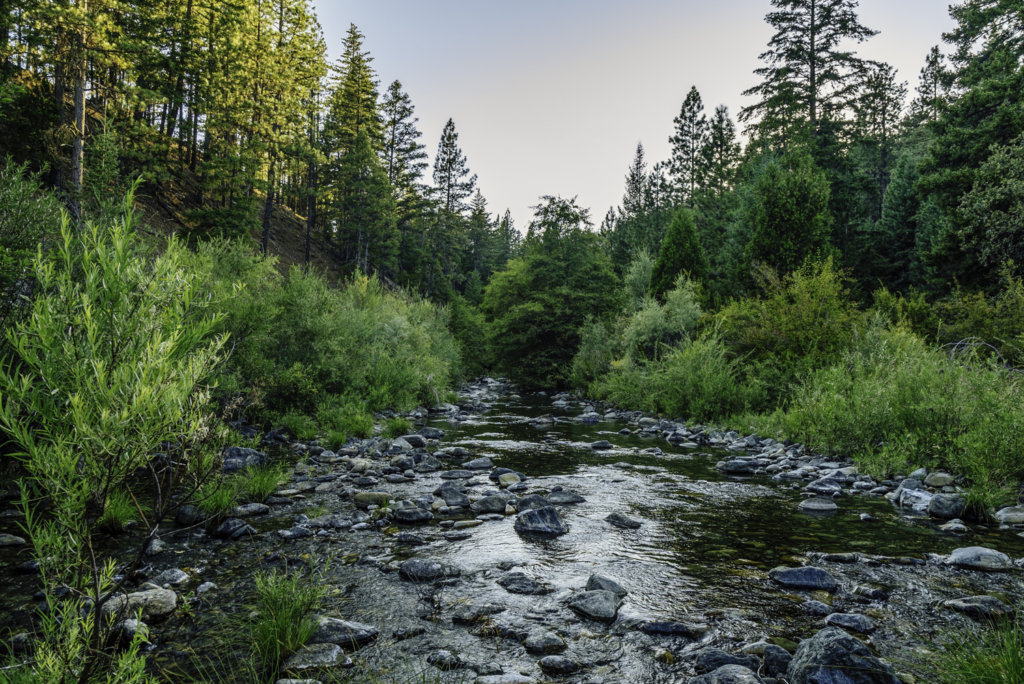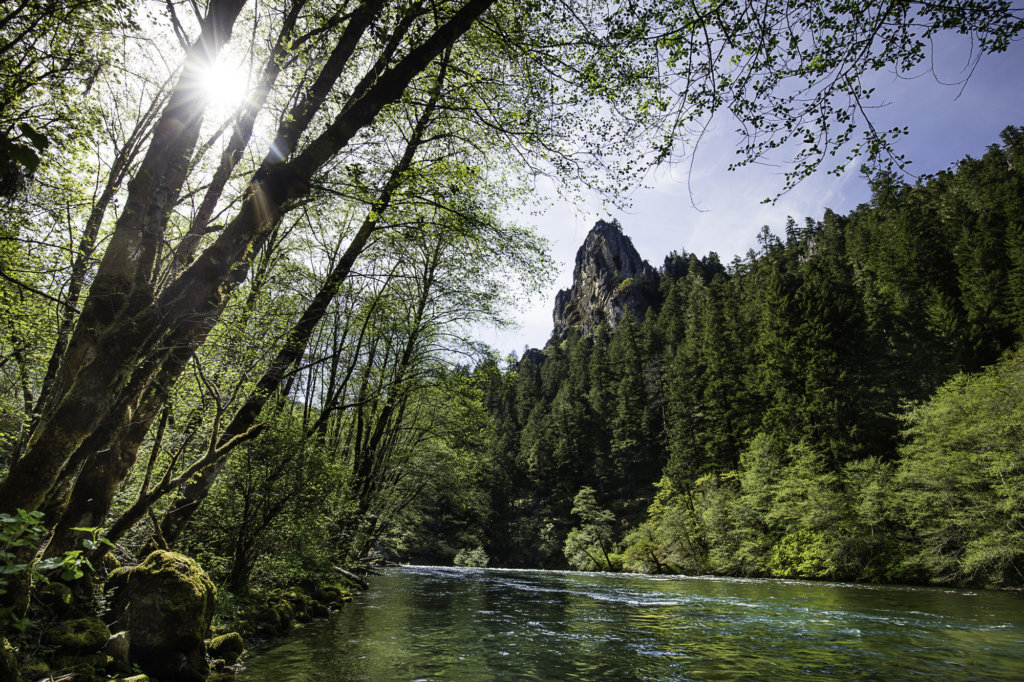By Anne Tattam | Grants Manager
With backing from GlobalGiving donors, Western Rivers Conservancy is permanently protecting land along outstanding rivers across the western United States. Your gift supports the core costs of purchasing and conserving land for the benefit of fish, wildlife and people. Your contribution is dedicated to such efforts as preserving salmon and wildlife habitat, and creating new hiking trails, boating access and recreational opportunities.
Thanks to your support, Western Rivers Conservancy is:
California’s Scott River:
Building on our work in California’s Klamath River basin, Western Rivers Conservancy has embarked on an effort to improve stream flows within the South Fork Scott, the largest, cleanest and coldest tributary to the Scott River. The Scott flows to the Klamath and is the state’s single most important stream for native coho salmon, which are threatened or endangered throughout California and Oregon.
The Scott River produces more native coho than any stream in California, yet their numbers are so low, many fear coho could become extinct within the river barring meaningful, ongoing recovery work. To that effect, state and federal agencies and organizations have invested heavily in improving habitat within the South Fork and mainstem Scott rivers. This work has been crucial for the Scott and its fish, but its long-term success hinges upon one key ingredient: water.
The Scott is vital to coho because of its clear water, abundant spawning beds and lack of mainstem dams to impede fish migration. But the Scott and its fish—which include Chinook and steelhead—face a myriad of challenges, from water diversion and diking to deforestation and drought. The latter, which has been ongoing in California until just this year, has taken a tremendous toll on salmon. Frequently, there is simply too little water in the river and its tributaries to sustain healthy populations of spawning, holding and rearing fish. Our goal is to change that.
WRC purchased a property called the Bouvier Ranch and gained control of a critical water right on the South Fork Scott River. Control of that right will allow us to keep more water in-stream during summer to benefit coho, Chinook salmon and steelhead. Adjusting the irrigation schedule may increase summer-time flows in the South Fork by up to 20 percent, exactly when the river and its fish need those flows the most.
WRC’s purchase of the Bouvier Ranch will also allow us to conserve two miles of designated Critical Habitat for southern Oregon/northern California Coast coho. Combined with our rare opportunity to return water to the South Fork Scott, this will be a major step in the right direction for the Scott River and its fish. We are now working with local organizations to identify the best long-term steward to manage the lands as working lands, with conservation and public access the top priority.
Our efforts at the Bouvier Ranch also provide the opportunity for WRC to protect a viewshed on the Pacific Crest Trail by acquiring a nearby property that has been a top priority for the Pacific Crest Trail Association for years. The PCT skirts this property at the northeast edge of the Trinity Alps Wilderness before crossing the South Fork Scott River, upstream of the Bouvier Ranch. Our hope is to protect the views that make the PCT so scenic while ensuring the river that hikers encounter is healthy both for people and the salmon that return each year to spawn.
Oregon’s North Umpqua:
Two years ago, the future was uncertain for Douglas County’s Swiftwater Park on Oregon’s North Umpqua River. The 211-acre park controls the western end of the 79-mile North Umpqua National Recreation Trail, at the beginning of some of the most coveted fly fishing water in the West. It also harbors stands of ancient forest, prime habitat for salmon and steelhead and over a mile of river frontage. When the county was forced to sell the park, Western Rivers Conservancy stepped in to buy it, ensuring this reach of the North Umpqua remains protected, rather than harvested or developed, and open to the public forever.
The Umpqua and Rogue are the only two coastal rivers in Oregon with headwaters in the Cascade Range. All other coastal rivers rise in the lower-elevation Coast Range. Fed by snowmelt, the North Umpqua flows clean and cold year-round, its chilly emerald waters a contrast to the nearby rivers that warm dramatically in summer. This anomaly is what makes the North Umpqua so crucial to cold-water fish, including Chinook and coho salmon, sea-run cutthroat and summer and winter steelhead.
WRC completed the project this month when we conveyed the lands to the Bureau of Land Management for inclusion and protection within the North Umpqua Wild and Scenic River Corridor. This was WRC’s first effort on the North Umpqua, and we are now working to conserve additional reaches of this vitally important West Coast river.
Conclusion
The South Fork Scott and the North Umpqua River Projects are two of our recent successes. WRC currently has two dozen active projects in six states. With the support of GlobalGiving donors, Western Rivers Conservancy is expanding our efforts to protect riverlands for fish, wildlife and people.
We love to hear from our supporters. Please contact Anne Tattam at 503-241-0151, ext. 219 (or atattam@westernrivers.org) for further information. Thank you.
Project reports on GlobalGiving are posted directly to globalgiving.org by Project Leaders as they are completed, generally every 3-4 months. To protect the integrity of these documents, GlobalGiving does not alter them; therefore you may find some language or formatting issues.
If you donate to this project or have donated to this project, you can receive an email when this project posts a report. You can also subscribe for reports without donating.
Support this important cause by creating a personalized fundraising page.
Start a Fundraiser
